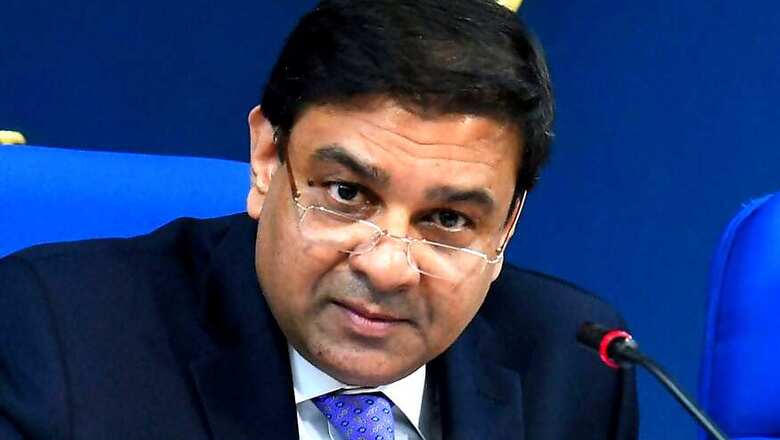
views
New Delhi: The Reserve Bank of India's (RBI) board meeting on November 19 is expected to be a stormy affair in the backdrop of the ongoing tussle between the government and the central bank.
Along with the issue of governor Urjit Patel’s resignation, some members are likely to raise matters concerning capital framework, management of surplus and liquidity measures for MSMEs.
Tensions between the RBI and the government have recently escalated, with the finance ministry initiating discussion under the never-used-before Section 7 of the RBI Act which empowers the government to issue directions to the RBI Governor.
RBI Deputy Governor Viral Acharya had in a speech last month talked about the independence of the central bank, arguing that any compromise could be "potentially catastrophic" for the economy.
Other issues which could be raised include alignment of capital adequacy norms with those in advanced countries and some relaxation in the Prompt Corrective Action framework, sources said, adding more measures to enhance lending to MSMEs and NBFCs may also be discussed.
With regard to capital framework, the government last Friday said it was discussing an "appropriate" size of capital reserves that the central bank must maintain as it denied seeking a massive capital transfer from the Reserve Bank.
Economic Affairs Secretary Subhash Chandra Garg had said that the government was not in any dire needs of funds and that there was no proposal to ask the RBI to transfer Rs 3.6 lakh crore.
The government, he said, is on track to meet the fiscal deficit target of 3.3 percent of GDP for the financial year 2018-19.
"There is no proposal to ask RBI to transfer (Rs) 3.6 or (Rs) 1 lakh crore, as speculated," he had tweeted. "Government's FD (fiscal deficit) in FY 2013-14 was 5.1%. From 2014-15 onwards, government has succeeded in bringing it down substantially. We will end the FY 2018-19 with FD of 3.3 percent. Government has actually foregone (Rs) 70,000 crore of budgeted market borrowing this year."
Garg further said the only proposal "under discussion is to fix an appropriate economic capital framework of RBI".
According to experts, the 'economic capital framework' includes transfer of surplus reserves to the exchequer.
Former Union finance minister P Chidambaram had asked the Centre what was its "tearing hurry" to "fix" the capital framework of the RBI when the ruling dispensation had just four months to complete its term.
"The NDA government has competed 4 years and 6 months of its term. It has effectively 4 months left. What is the tearing hurry to 'fix' the capital framework of RBI?" he tweeted.
Meanwhile, slapped with a show-cause notice to its governor Urijit Patel from the CIC, the Reserve Bank of India has sought time till November 26 from the commission, highest adjudicating body in RTI matters, for furnishing its response.
The case is likely to meet a dead end as information commissioner Sridhar Acharyulu will complete his term in the panel on November 20 which will be his last date of working. Acharyulu had asked the RBI to furnish response by November 16, but the bankers’ bank has now sought time till November 26.
The Central Information Commission (CIC) had issued the notice to Urijit Patel as the RBI refused to disclose the list of big loan defaulters in spite of orders of the Supreme Court (Jayantilal Mistry case in 2015) which had asked the RBI to abide by one of the orders of the then Information Commissioner Shailesh Gandhi calling for the disclosure of the loan defaulters under the Right to Information Act.
Acharyulu had said that such defiance of Supreme Court orders cannot be at the level of Central Public Information Officer. He said the RBI governor should be considered as deemed CPIO under the provisions of the RTI Act for not disclosing the information and explain why he should not face maximum penalty for obstructing information in spite of apex court orders.




















Comments
0 comment